The Feeling Delivered by the Pronunciation of Korean Words
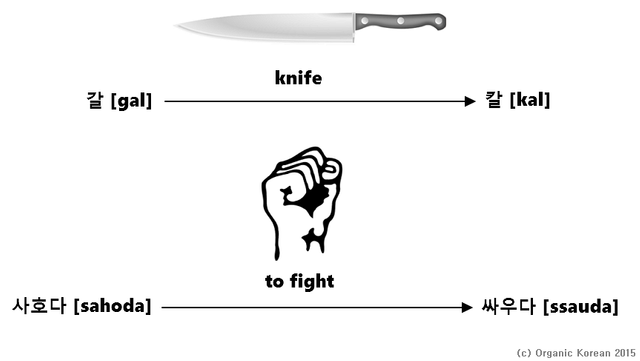
I believe most languages tend to deliver feeling and emotion through pronunciation. Especially, the Korean language has had many words that have this kind of characteristic. As you guys notice, the sound of the aspirated consonants and tense consonants in Hangeul (Hangul) is pretty rough and not smooth.
Most of the Korean names of weapons are comprised of aspirated and tense consonants. Let me give you some examples.
In fact, before Japanese Invasions of Korea (1592-1598), which is known as the Imjin War(임진왜란 [imjinwe-lan]), ‘갈 [gal]’ was used to mean the noun 'knife' instead of ‘칼 [kal].’ Also, ‘사호다 [sahoda]’ was used to mean the verb ‘to fight ’ instead of '싸우다 [ssauda].' In other words, ‘갈’ and ‘사호다’ were the middle-Korean forms of ‘칼’ and ‘싸우다.'
In my opinion, the war had influence and made ‘갈’ and ‘사호다’ to become pronounced as ‘칼’ and '싸우다.’
In this way, the negative atmosphere of society seems to make languages rough and harsh.
(I’ve just noticed that pretty much all swear words or profane language in both Korean and English contain one or more stressed consonants. You can think of several bad words even without me listing some of them; they will invariably have strong sounds when you pronounce them.)
"The more wars and disasters the country is involved in, the harsher the sounds used in the language."
On the other hand, the words which have positive meaning have an inclination not to include the sound of aspirated and tense consonants.
Considering this linguistic characteristic, when you guys are faced with unfamiliar Korean vocabulary, you are able to infer the approximate meaning. Also, it can help you guys categorize Korean words with appropriate patterns more readily.
Reference :
- 이외수. 바보 바보. 서울: 해냄출판사; 2004.
- 이외수. 글쓰기의 공중 부양. 서울: 해냄출판사; 2007.
Posted from my website Organic Korean with SteemPress : http://organickorean.com/the-feeling-delivered-by-the-pronunciation-of-korean-words/
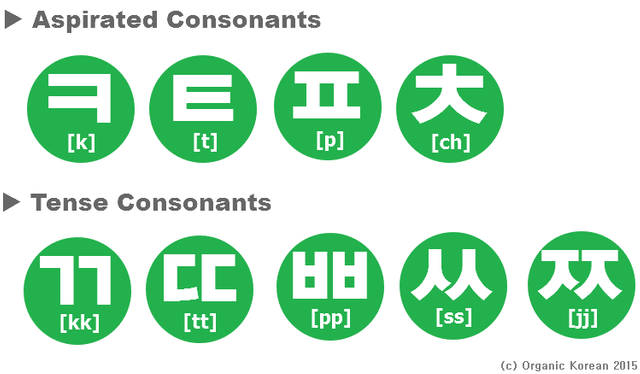
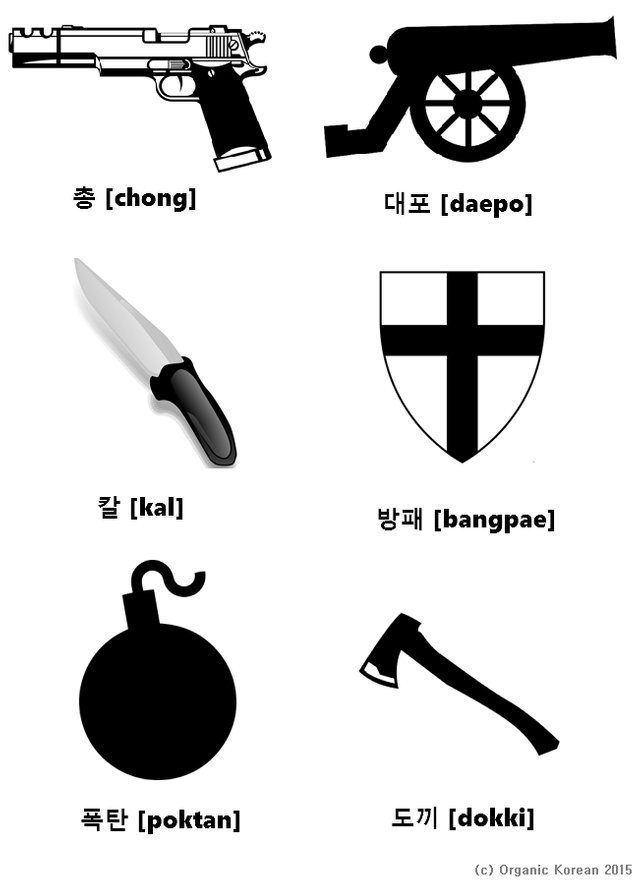
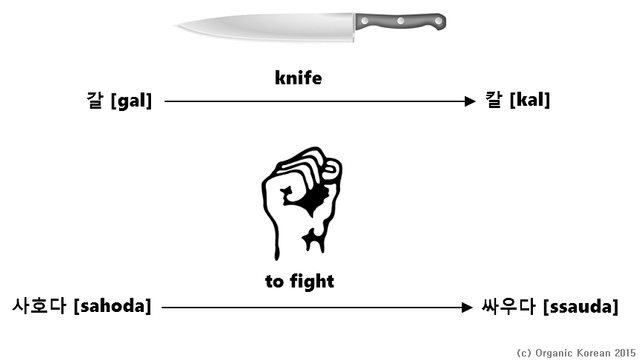
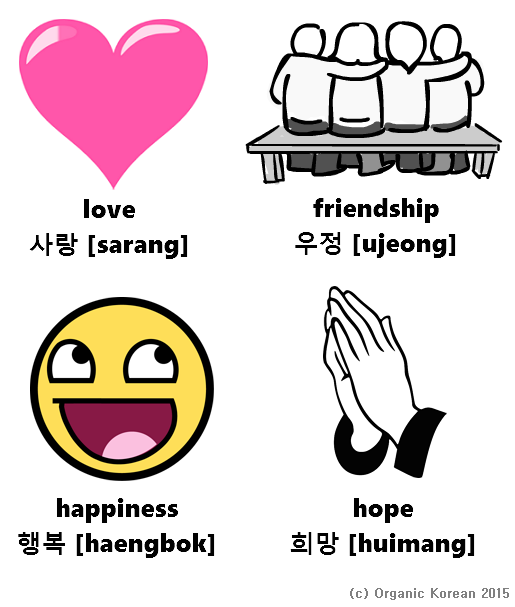
포스팅 잘 보았습니다. 긍정적인 의미의 용어를 우선 사용하고 경음 사용을 줄일 수 있도록 유사단어를 찾아봅니다. 저는 말을 할 때 습관! 중요하다고 생각하더군요........처음 알았네요. 갈, 사호다. 감사합니다.
Posted using Partiko iOS
읽어주셔서 감사합니다 ;)
보팅했다 날짜가 지나서... 쓰시느라 수고하셨고 저도 공감하였고 배웠으므로 보팅 save입니다. 조만간 꾸욱 누질르겠습니다.
Posted using Partiko iOS